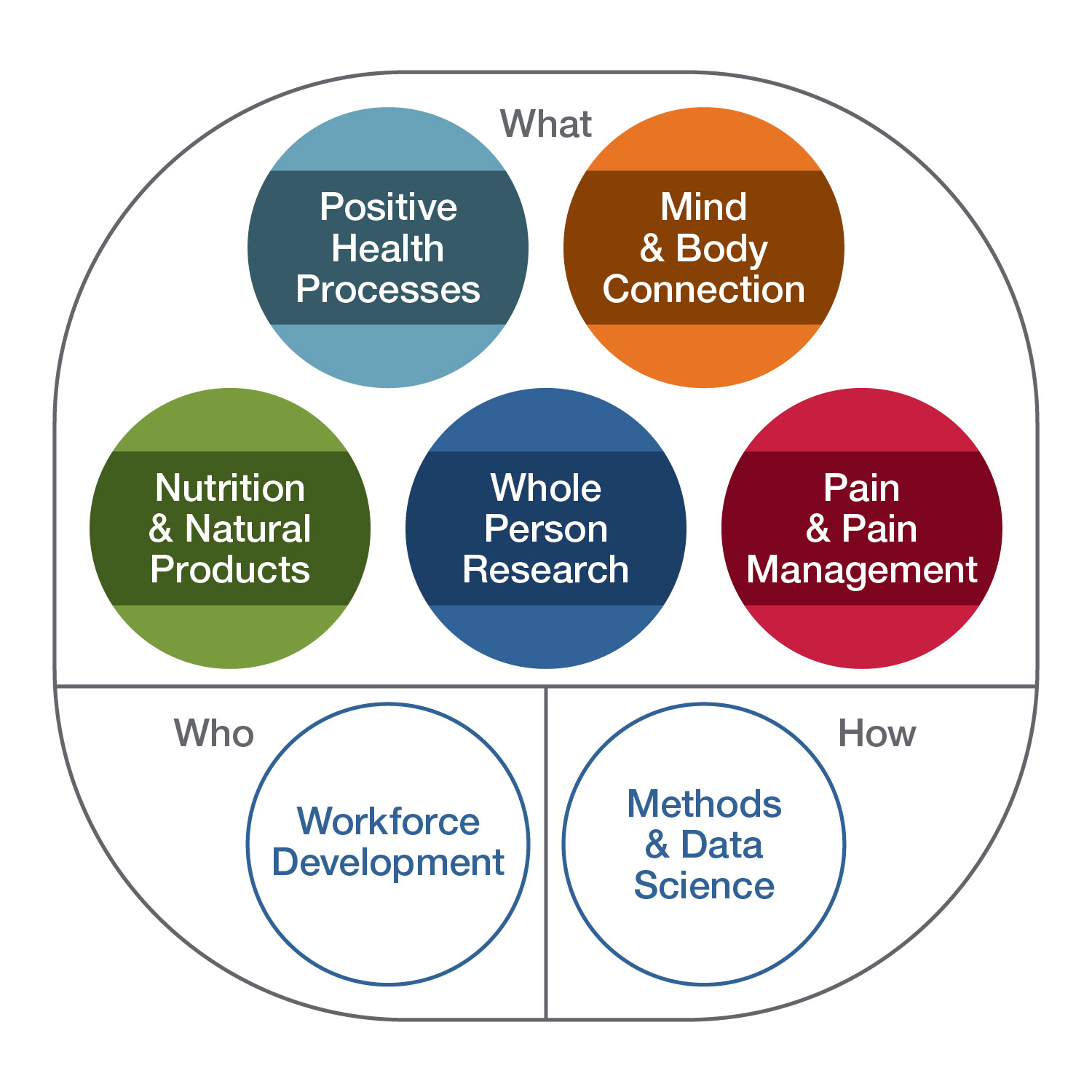The National Center for Complementary and Integrative Health (NCCIH): Supporting Research on the Whole Person
The Challenge
- 37 percent of U.S. adults use complementary or integrative health approaches and spend over $30.2 billion a year on these interventions—largely paid out of pocket and not covered by health insurance.
- Chronic pain affects about 1 in 5 Americans, and it is often undertreated or treated with potentially addictive opioids, leading to the deadly and costly opioid crisis. Pain is the most common reason why Americans use complementary and integrative health practices.
- Americans are stressed and frustrated navigating a fragmented health care system focused on addressing disease, rather than considering the whole person and promoting health.
These challenges cost Americans money, time, and their health.
NCCIH’s Role
By advancing research on evidence-based nonpharmacologic therapies, NCCIH provides the science needed to help Americans of all ages live healthier lives and reduce the burden of chronic disease.

About Complementary and Integrative Health
- Complementary health approaches include physical, psychological, and nutritional therapies and practices aimed at supporting positive health processes, connecting the mind and the body, and managing pain.
- Integrative health care combines conventional and complementary approaches to promote the health of the whole person and prevent disease.
Unique NCCIH Contributions
- 40 percent of NCCIH’s budget supports research on nondrug pain management, including studies now shaping Medicare policies.
- Basic insights into brain circuits regulating emotions are leading to novel mindfulness-based treatments for recovery from opioid use disorder.
- NCCIH is driving innovative pragmatic and implementation research to test nondrug therapies in “real world” health care settings including the Military Health System and Veterans Health Administration.
- NCCIH supports basic research on natural products such as flavonoids to enhance stress resilience, and studies leading to FDA new drug applications such as cytisine for smoking cessation.
- NCCIH-led basic research on brain-body communication and emotional and physiological regulation is key to understanding the effects of mind and body therapies including meditation and yoga for stress management.
- NCCIH’s Intramural Research Program (IRP) coordinates pain research across the NIH IRP.
Future Complementary and Integrative Health Research Directions
- NCCIH is creating Resource Centers to stimulate key areas of research and to support the development of the complementary and integrative health scientific workforce.
- The Whole Person Research and Coordination Center will develop novel network mapping and modeling tools to study whole person physiology for basic and translational research.
- The Whole Person Health Index, created in collaboration with the CDC’s National Center for Health Statistics and NIH’s All of Us Research Program, will provide a person-centered assessment of whole person health for clinical research and population studies.
Learn more by visiting NCCIH’s online resources:
Core Research Milestones from NCCIH
- Acupuncture for Chronic Low Back Pain (Arch Intern Med, 2009)
- Acupuncture Meta-analysis (J Pain, 2018)
- Mindfulness-Oriented Recovery Enhancement (MORE) reduces drug use (JAMA Psychiatry, 2024)
- Yoga for Back Pain (Ann Intern Med, 2017)
- Massage for Osteoarthritis (J Gen Intern Med, 2019)
- Tai Chi vs Physical Therapy (Ann Intern Med, 2016)
- Mindfulness for Hypertension (J Am Heart Assoc, 2023)
- ACP Guidelines on Nonpharmacologic Pain Treatments (Ann Intern Med, 2017)
- A vagal-brainstem interoceptive circuit for cough-like behaviors (Nat Neurosci, 2024)
- Multifunctional microelectronic fibers for gut-brain signaling (Nat Biotechnol, 2024)
- PIEZO2 regulates GI transit (Cell, 2023)
- Visceral sensory map in the brainstem (Nature, 2022)
- Somatosensory innervation of fat tissue (Nature, 2022)
- Inter-organ neural circuits for appetite (Cell, 2022)
- Cortical influence on the stomach (PNAS, 2020)